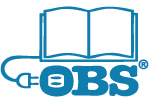OBS once built a zesty Web interface for a school that enabled students to drop, click, aggregate, and otherwise customize and combine web-based content with their own. The system automated workflow which up till that point had existed on legal pads, hard drives, and in paper files. When we demo’ed the program to the school’s trustees, they rose in a standing ovation. But when we demo’ed the system to the employees who actually worked one-on-one with the students, expecting the same reception -– “Think of all the time we’ll save!” or “Now we can focus on more creative rather than clerical work!” -– instead, the Office Manager shook her head despondently and said: “There goes my job.”
Indeed, many entry-level and clerical positions in publishing and education have disappeared during the internet revolution. Digits don’t behave like paper, and anyone doing repeatable work that can be turned into running code feels a cold breeze blowing.
That said, new and creative publishing jobs are cropping up all along the borders of the “Human Machine Interface (HMI)”*. For example, to render machine translation meaningful and valuable, a human being needs to vet that translation, validate it against the original and other translations, perhaps using translation memory software, and work with the company’s Metadata Manager to update underlying taxonomies and glossaries that inform the publishing site infrastructure. When an online publisher makes business decisions based on analytics, a Bibliometrician’s input is necessary. Accessibility Editors, and <Alt tag> Writers creating structured metadata such as Image Descriptions play an increasingly important role as publishers hasten to render their content accessible to wider audiences on a plethora of devices, from wristwatch size to billboard dimensions. And behind it all, the Business Model Expert, a kind of cyber surfer staying ahead of the wave, guides the publisher in defining and assigning floating value to content, whether it:
- Gets chunked and freely released as marketing copy
- Sits behind a paywall for access as an eBook, or
- Interoperates with other publishers’ content within a third-party Learning Management System (LMS).
The content curator, performing a job that used to be called “Acquisition Editor,” has an even more important role now than in the reign of paper, more like a movie producer, responsible for identifying and contracting with talent, then overseeing the emergence of nascent new forms of content online as authors create, license, and refine, peers edit and review, and “content futures” become bankable.
***
*We first heard of “HMI” back in the 1990s, at a Doors of Perception conference in the Netherlands, where a U.S. Air Force pilot described his plane’s cockpit HMI which came in the form of custom eyeglasses enabling each person in the cockpit to see a different version of the control panel, depending on his rank, privileges, and the mission ahead. To anyone not wearing the glasses, the control panel appeared completely blank.
